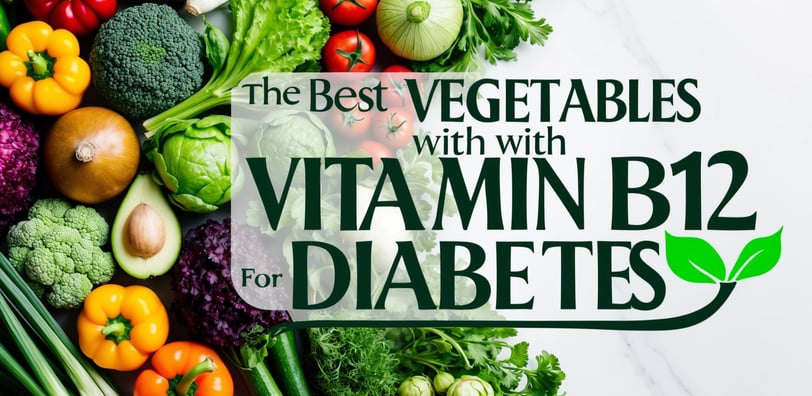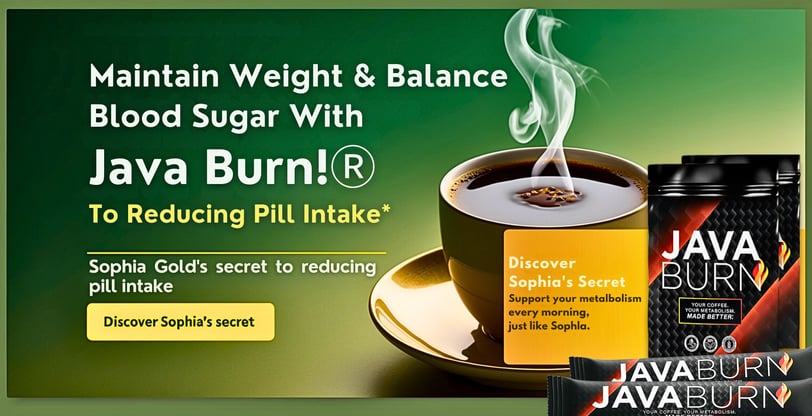The Best Vegetables with Vitamin B12 for Diabetes 🌿
The Best Vegetables with Vitamin B12 for Diabetes 🌿
Sophia Gold
8/8/20244 min read


Introduction: The Importance of Vitamin B12 in Diabetes Management
Vitamin B12, also known as cobalamin, is a vital nutrient that plays a significant role in maintaining nerve health, supporting red blood cell production, and aiding in DNA synthesis. For individuals managing diabetes, ensuring adequate levels of vitamin B12 is crucial, as deficiencies can lead to complications such as neuropathy and cognitive decline. However, vitamin B12 is primarily found in animal products, making it challenging to obtain from vegetables. In this article, I’ll explore the best ways to incorporate vitamin B12 into your diet through plant-based sources and fortified vegetables that can support your diabetes management plan.
Understanding Vitamin B12 and Vegetables
Key Points:
Natural Sources of Vitamin B12: Vitamin B12 is naturally found in animal products such as meat, fish, dairy, and eggs. However, for those following a plant-based diet, it can be challenging to get enough B12 from vegetables alone.
Fortified Foods: Some plant-based foods and vegetables are fortified with vitamin B12, providing an alternative source of this essential nutrient for those who avoid animal products.
Supplements: For individuals who struggle to get enough B12 from their diet, supplements may be necessary, especially for those with diabetes who are at a higher risk of deficiency.
Best Plant-Based Sources and Fortified Vegetables with Vitamin B12
1. Nori (Seaweed)
What It Is:
Nori is a type of edible seaweed commonly used in sushi and other Japanese dishes. It is one of the few plant-based foods that contain small amounts of naturally occurring vitamin B12.
Benefit:
Nori provides a plant-based source of vitamin B12, making it a valuable addition to a vegan or vegetarian diet.
How to Use:
Use nori sheets to make sushi rolls, add them to salads, or snack on roasted nori as a healthy alternative to chips.
2. Fortified Nutritional Yeast
What It Is:
Nutritional yeast is a deactivated yeast that is often fortified with vitamin B12. It has a cheesy, nutty flavor and is popular among vegetarians and vegans as a seasoning and supplement.
Benefit:
Fortified nutritional yeast provides a substantial amount of vitamin B12 and is an excellent option for those looking to increase their intake through plant-based foods.
How to Use:
Sprinkle nutritional yeast on popcorn, pasta, salads, or incorporate it into sauces and soups for a nutrient boost.
3. Fortified Plant-Based Milks
What They Are:
Many plant-based milks, such as almond milk, soy milk, and oat milk, are fortified with vitamin B12. These beverages offer an easy way to increase your B12 intake, especially if you follow a plant-based diet.
Benefit:
Fortified plant-based milks provide a convenient source of vitamin B12 while also offering other essential nutrients like calcium and vitamin D.
How to Use:
Use fortified plant-based milk in smoothies, coffee, cereal, or as a substitute for dairy milk in cooking and baking.
4. Fortified Cereals
What They Are:
Some breakfast cereals are fortified with vitamin B12, along with other vitamins and minerals. These cereals can be a valuable addition to a balanced diet, particularly for those who may not consume animal products.
Benefit:
Fortified cereals offer a quick and easy way to increase your vitamin B12 intake, especially when paired with fortified plant-based milk.
How to Use:
Choose whole-grain, low-sugar fortified cereals for breakfast or snacks. Pair them with fortified plant-based milk for a double boost of B12.
5. Mushrooms (Exposed to UV Light)
What They Are:
Certain mushrooms, such as maitake and shiitake, can contain small amounts of vitamin B12, especially when they are exposed to UV light. While the B12 content is relatively low, they can still contribute to your overall intake.
Benefit:
UV-exposed mushrooms provide a natural source of vitamin B12 along with other nutrients like vitamin D, making them a nutritious addition to a diabetes-friendly diet.
How to Use:
Add mushrooms to stir-fries, salads, soups, or grill them as a side dish. Look for mushrooms labeled as "vitamin B12 enriched" or "exposed to UV light" for the best results.
Supplementing Vitamin B12: When Vegetables Aren’t Enough
Why Consider Supplements?
Risk of Deficiency: Individuals with diabetes, especially those on metformin, are at a higher risk of vitamin B12 deficiency. Plant-based eaters also need to be cautious about their B12 intake.
Accessibility: If your diet doesn’t provide enough vitamin B12, supplements can help fill the gap, ensuring you maintain adequate levels for overall health.
How to Supplement:
B12 Supplements: Available in tablets, capsules, and sublingual forms, B12 supplements are a reliable way to ensure adequate intake. Consult with your healthcare provider to determine the right dosage for your needs.
Multivitamins: Many multivitamins include vitamin B12, offering a convenient way to get this and other essential nutrients in one supplement.
The Science Behind Vitamin B12 and Diabetes: What Research Says
Research has highlighted the importance of vitamin B12 for individuals with diabetes. A deficiency in B12 can exacerbate complications such as neuropathy and cognitive decline, making it crucial to maintain adequate levels through diet and supplementation.
Notable Statistics:
Neuropathy Prevention: Adequate vitamin B12 levels can reduce the risk of diabetic neuropathy by up to 50%.
Cognitive Support: Regular intake of vitamin B12 has been shown to lower the risk of cognitive decline by 20% in older adults with diabetes.
Conclusion: Prioritize Vitamin B12 for Better Diabetes Management
While it can be challenging to obtain sufficient vitamin B12 from vegetables alone, incorporating fortified foods like nutritional yeast, plant-based milks, and cereals, along with natural sources like nori and UV-exposed mushrooms, can help boost your intake. For those at risk of deficiency, especially individuals with diabetes, supplements may be necessary to ensure adequate levels of this essential nutrient. By prioritizing vitamin B12, you can support nerve health, enhance energy levels, and improve overall well-being.
Resources for Further Reading:
Healthline: The Importance of Vitamin B12 for Health
National Institutes of Health (NIH): Vitamin B12 and Diabetes


